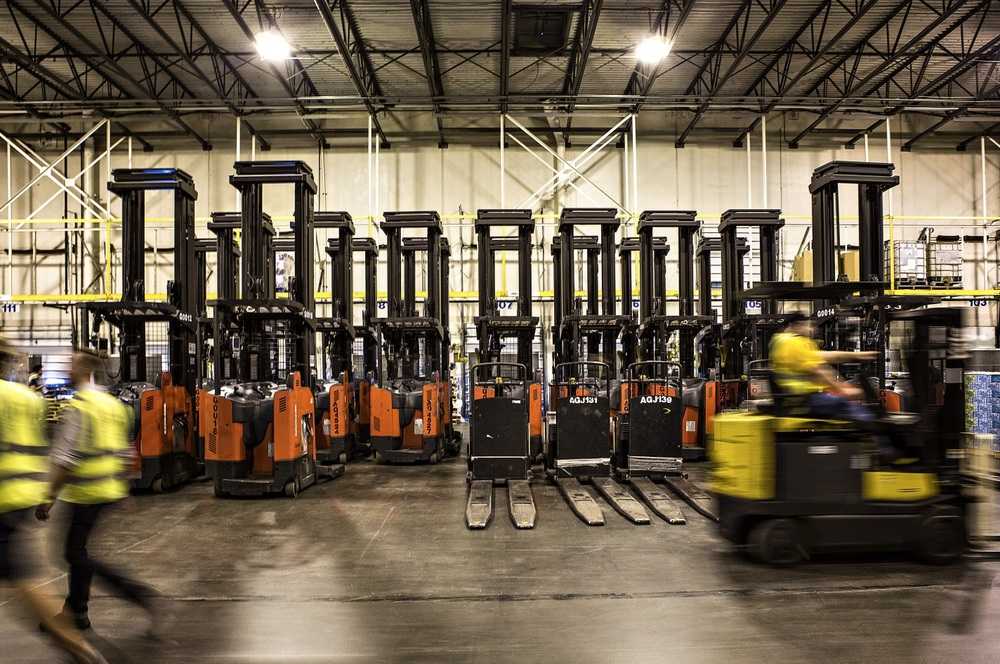
Labor is the backbone of the supply chain. But not all warehouse labor is created equal. The decision to manage a distribution center with in-house labor, or outsource to a managed labor provider, can significantly impact your bottom line, operational efficiency, and long-term success. Understanding the full picture—beyond surface-level costs—can be the key to unlocking greater productivity and profitability.
The Benefits of Outsourcing vs. Hiring In-House
One of the most compelling reasons to consider outsourcing is the sheer time and energy that goes into recruiting, hiring, and training a warehouse workforce. When you choose to hire in-house, the responsibility of finding, vetting, and onboarding new employees falls squarely on your shoulders. This process is not only time-consuming but also costly, involving multiple steps such as drafting job descriptions, advertising positions, interviewing candidates, conducting background checks, training and monitoring performance. And the process is relentless as the need for qualified associates never ends.
Peter Drucker, a renowned management consultant, famously said, "Do what you do best and outsource the rest." This philosophy is particularly relevant in the warehousing industry. By outsourcing your labor needs to a managed provider like FHI, you can focus on what you do best—running your core business operations—while leaving the complexities of labor management to experts.
Overcoming the Cost Barrier: Seeing Beyond the Hourly Rate
One of the most common objections to outsourcing labor is the perceived cost. Decision-makers often get stuck on the hourly rate, viewing it as a line item on the profit and loss (P&L) statement. However, this narrow focus can be misleading. The hourly rate is not the full picture; it’s just the tip of the iceberg.
To illustrate this point, consider the fully burdened cost of an internal associate. Beyond the base wages, you must account for recruitment expenses, employee benefits, payroll taxes, workers' compensation insurance, training programs, and turnover costs. These hidden expenses can quickly add up, eroding the cost advantage of hiring in-house.
The chart below details the fully burdened cost of an associate, based on industry averages for some of these HR-related costs, and a base rate of $16 per hour:
|
Base Pay Hourly Rate |
$16.00 |
|
Benefits (30%) |
$4.80 |
|
Taxes (Employer, unemployment @17.65%) |
$2.82 |
|
HR (Recruiting, hiring, training – assume 20% turnover |
$0.98 |
|
Insurance/Worker’s Comp |
$1.50 |
|
FULLY BURDENED COST |
$26.10 |
Outsourcing to a managed labor provider like FHI allows managers the ability to transfer these costs and risks to the partner.
Not All Managed Labor Providers Are Created Equal: Why FHI Stands Out
In the world of managed labor, it’s easy to assume that all providers offer similar services, but this couldn't be further from the truth. The choice of a managed labor provider can make or break your operation’s efficiency, productivity, and overall success. Here’s why partnering with FHI provides a distinct advantage.
Experience That Drives Results
FHI brings over three decades of experience in the warehousing and distribution sectors, a track record that few can match. This extensive experience means that FHI not only understands the nuances of labor management but also has a deep knowledge of industry-specific challenges and best practices. This allows FHI to tailor its services to meet the unique needs of each customer, delivering results that go beyond expectations.
Onsite Management: The Key to Seamless Operations
One of the core benefits of partnering with FHI is our commitment to onsite management. Unlike some providers who operate remotely or with minimal oversight, FHI embeds experienced managers directly within your operation. These managers are not just there to supervise—they actively work to optimize processes, solve problems in real-time, and ensure that the workforce is fully aligned with your operational goals. This hands-on approach leads to smoother operations, reduced downtime, and a more cohesive team.
Production Pay Model: Incentivizing Productivity
FHI understands that a motivated workforce is a productive one. That’s why we employ a production pay model, where associates are incentivized to exceed performance targets. This model aligns the interests of the workers with those of the operation, driving higher productivity, reducing errors, and fostering a culture of continuous improvement. With FHI, you’re not just getting a labor provider—you’re getting a partner committed to excellence.
FHI INSITE: Where Data & Analytics Meet Expertise
In today’s fast-paced environment, having real-time access to data is crucial. FHI INSITE is our proprietary data and analytics tool that provides real-time transparency into your operation’s performance. But data alone isn’t enough—what sets FHI apart is how we combine this data with our decades of industry expertise. This synergy between data, analytics, and experience allows us to make informed decisions that enhance efficiency, reduce costs, and improve overall operational performance. With FHI INSITE, you get more than transparency—you get actionable insights that drive success.
The FHI Advantage
When it comes to warehouse labor, the choice between hiring in-house and outsourcing to a managed labor provider is not just a financial decision—it’s a strategic one. By outsourcing to FHI, you can maximize productivity, elevate efficiency, and gain access to a wealth of experience and expertise. And remember, not all labor providers are created equal. FHI’s unique combination of experience, onsite management, a production pay model, and innovative tools like FHI INSITE sets us apart in the industry. When choosing a managed labor provider, don’t settle for less. Choose FHI.
In any market, your supply chain can make or break your ability to compete well. Don't leave that to chance. We can help you create a stronger operation, so you never fall behind the competition.
Stop worrying about labor challenges and start enjoying a safe, lean, and rock-solid supply chain.
(800) 849-3132 | © FHI. All rights reserved.